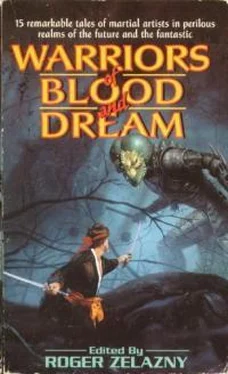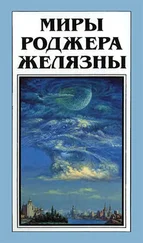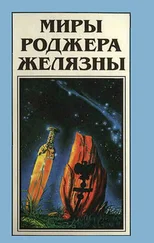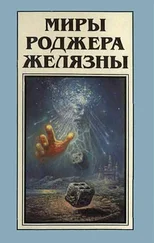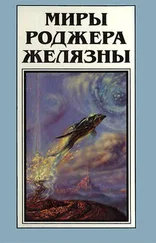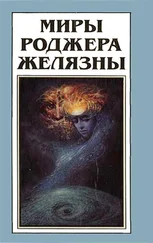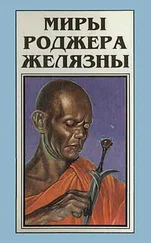A few years ago I was walking down my steep, blacktop driveway one winter day to pick up the morning papers when I struck a patch of ice. This time, as I felt myself slip forward I relaxed my upper body; it felt as if everything from my shoulders down to my waist instantly drained into my center. I sank into the slide and rode with it as if I were skiing. When I came to the edge of the ice I stepped off, straightened to my full height, and continued on down the hill. Later I tried it again intentionally, just for the hell of it, and I responded the same way each time. I embraced it and went with it. I had been doing aikido for three or four years at that point.
One does the same ukemi (breakfalls) in aikido as one does in judo or jujutsu; one also does a rolling version which brings one back to one's feet. The appropriate species of ukemi depends on the vector of the throw, and after a time one's body just knows which sort to employ, from somewhere down at the level of the spinal nerves. One learns to fall from one's center as well as to move from it in the vertical.
One member of my aikido class was Leroy Yerxa, Jr., son of the old Ziff-Davis science fiction writer of that name. Later, widowed, his mother had remarried—William Hamling, who soon had Leroy reading the slush pile of his magazine, Imagination . Leroy and I are the same age, and he was reading it in his teens at the same time I was writing and trying to sell. It is likely that he'd rejected some of my early stories, though I've never mentioned the possibility to him. I wonder, after all these years, whether he was the one who penned me the "Sorry, try again" on one of those early slips. One of life's odd turnings or returnings.
Behaviorism strikes me as an awfully cynical view of human nature: We run the maze because we're paid to, or because we fear the consequences if we don't. But, on the other hand, I've often wondered whether Freud himself believed, as so many of his followers seemed to, that every human action is the result of some hidden compulsion. I wondered whether some people might not simply choose values and conduct themselves in accordance with them. Or was that too naive? I remember my Political Science professor, Dr. Hotz, cautioning the class never to place too much trust in any system which relied heavily on the rationality of the human animal for its operation. He refused to guess as to the exact nature and extent of human irrationality. Just being aware of its existence is sufficient, he'd once told me. It was obviously there, though, I later came to realize, as humanity's collective suki .
I was impressed by Noel Perrin's book, Giving Up the Gun ("Japan's Reversion to the Sword, 1543-1879"), wherein he tells of firearms first being introduced into that country in 1543 and during the next thirty-some years pretty much replacing the sword save for a few diehard samurai. But this produced a reaction, when the warlords realized that they could spend years training great fighting men and then have them shot down by someone who'd learned only how to aim and fire, before the warriors could even close with them. So, the last engagement of the period in which firearms played a major role was the Shimabara Rebellion in 1637, wherein Christianity lost its last chance for success in that country. Afterward, the warlords licensed all of the gunmakers, regulated and purchased their total output, and locked the weapons up in warehouses; and the samurai went back to fencing, the monks to making arrows, the smiths to armoring. Firearms were then used only for hunting and display. It wasn't until the breaking of the samurai in the Satsuma Rebellion in the late 1870s that firearms came back—this time to stay—well over two centuries later. The author makes no overt comparisons concerning this and any voluntary abandonment of nuclear weapons; he simply describes what once happened, resulting in a culture's putting aside a form of military technology.
But, never place too much trust in any system which relies ... I am reminded by memories of my Morgenthau-trained mentor. And there are plenty of holes to be found in attempted comparisons of one culture with another.
I do find stories like this fascinating, though, possibly only because I'm a technology junkie. The Greeks had an aeoliple, a rotating steam-powered novelty machine. With that technology, they could easily have learned to distill wine and make brandy, adding to the amenities (not to be confused with the Eumenides), but look how long the wait for spirits really was. The interaction of technology and society is one of the fascinations science fiction has always held for me. Even if there are no easy answers.
While doing push hands with a friend awhile back I gave a very liberal answer to a political question he'd asked me, and it made me think of something much more general.
People have told me that they can't tell my politics from my stories. The reason is something that probably smacks of perversity, save that I was the way that I am long before I'd thought it through: When the country's political climate is conservative I tend to grow liberal. When it swings the other way I find myself feeling more conservative. This goes back to a basic mistrust of extremes. I don't know whether, ultimately, this makes me radical or extremely conservative. More likely, it shows me as being basically mistrustful of both government and the temper of the times in general. I am aware of a somewhat paranoid element in my makeup when it comes to anyone or anything capable of exercising power over me. Whether this reaction is push-pull or turning, it is hard to say. Whether it is hard style or soft style depends upon how active, and in what ways, I choose to become on any matter. I mistrust principles, too, and tend to stick to values. That is as close as I can come to a principle.
"Aikido is purely defensive," Phil told me one day, as yellow and gold cottonwood leaves blew by us in the park, "teaching one to respond to aggression. But when does an attack really begin? When the other person takes a swing at you? Or when that person forms the intent to do so? Are there ways of detecting this intent before it becomes action?"
"If you've got an example, please give it to me," I said.
"I once worked in a hospital," he responded, "where a patient who seemed disturbed cursed me and began moving toward me while we were waiting for an elevator. That might be taken as an intent to attack."
"What did you do?" I asked.
"I raised my hands before me," he said, "and I smiled."
"And the man?"
"He changed his mind. Maybe it was the hands. Maybe it was the smile."
I read A Brief History of Time , by Stephen Hawking, a while back, because I feel obliged to read popular books in this area when written by anyone with such impressive credentials. While most of the book summarized general matters familiar to everyone who writes science fiction, the final chapters, which gave his cosmological thinking, were of interest. Even more interesting, however, was the man's triumph of sorts over that terrible wasting disease, amyotrophic lateral sclerosis (ALS)—Lou Gehrig's disease—which, while it racked his body, did not stop his mind in its turning through time, space, gravitation, from the quantum to the relativistic, in search of unities. In Neuro ("Life on the Frontlines of Brain Surgery and Neurological Medicine"), author David Noonan says:
... [I]t is generally recognized that ALS has three different rates of progression: the typical rate, in which the patient survives two to three years; an accelerated rate, in which death occurs in a matter of months or even weeks; and a very slow rate, in which the patient survives for ten years, twenty years, or even longer.
One doesn't know whether to bless or curse in a case like Dr. Hawking's. One can but wonder at the warrior heart that continues to face the cosmos down that slow rate, working, working for maximum understanding, unable to push-pull or reject his own accelerated entropy, able only to turn, between riddles personal and universal.
Читать дальше
